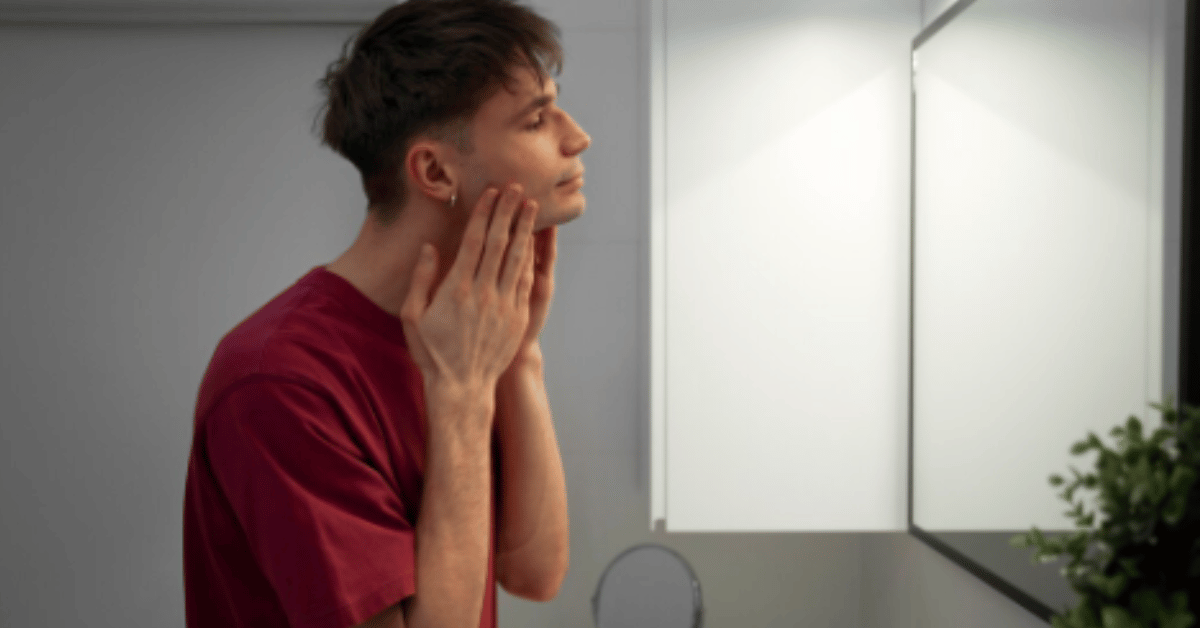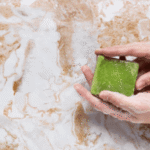Jaw popping is a surprisingly common experience that can range from a minor annoyance to a sign of a more serious joint disorder. When someone describes a “pop” in the jaw, it usually refers to a clicking or snapping sound that occurs when opening or closing the mouth. For some, the sensation comes with no discomfort, while others report pain, stiffness, or difficulty chewing. The searcher’s intent in exploring jaw popping often stems from curiosity about whether it is harmless or an indication of a deeper condition. The clear answer is that occasional jaw popping without pain is generally not a medical concern, but persistent popping, especially when paired with pain or restricted movement, may be linked to temporomandibular joint disorder (TMJ), arthritis, or muscular imbalances. Understanding what jaw popping means, why it happens, and how it can be treated is essential for protecting oral health and preventing long-term complications.
Understanding the Temporomandibular Joint (TMJ)
The temporomandibular joint, often abbreviated as TMJ, is the hinge connecting the jawbone to the skull. It allows for movement required in chewing, speaking, and even yawning. The joint itself is highly complex, involving cartilage, ligaments, and a disc that cushions movement. When functioning normally, the TMJ moves smoothly without sound. However, disruptions in this balance, such as displacement of the disc or tension in surrounding muscles, can lead to audible popping. Experts frequently describe the TMJ as one of the most intricate joints in the body because of its dual action—sliding and hinging at once. Problems in this joint not only produce mechanical sounds but may also extend into headaches, ear discomfort, or facial pain. In this way, jaw popping is not just a dental curiosity but a window into broader musculoskeletal health.
Common Causes of Jaw Popping
Jaw popping can emerge from multiple factors. One of the most prevalent causes is disc displacement, where the cushioning disc inside the joint shifts out of alignment and snaps back into place during movement. Muscle tension, often related to stress or clenching habits, can also produce irregular movement patterns that trigger popping. Additionally, arthritis within the TMJ can wear down protective cartilage, making joint motion less smooth and more audible. Injuries from impact, dental misalignment, or even prolonged gum chewing are further contributors. While each cause manifests differently, the shared feature is a disruption of natural joint mechanics. As one oral health specialist explains, “Jaw popping is rarely just noise—it reflects how the jaw and muscles are coping under strain.” Recognizing the underlying cause is vital because treatment varies greatly depending on whether the origin is muscular, structural, or degenerative.
Symptoms Associated With Jaw Popping
For many, jaw popping occurs without pain or restriction, but for others, it arrives with a spectrum of related symptoms. These may include tenderness around the jawline, headaches, earaches, difficulty in opening the mouth fully, or a sensation of the jaw locking. Sometimes the popping is intermittent, happening only during wide yawns or heavy chewing, while in severe cases it accompanies nearly every jaw movement. The intensity of symptoms often signals the seriousness of the condition. Occasional sound without pain may be ignored, but when discomfort escalates, it can disrupt eating and speech. Individuals with chronic popping often describe an ongoing worry about their jaw slipping out of place, reflecting the psychological toll of persistent joint issues. Importantly, jaw popping can also mimic ear problems, leading patients to mistakenly seek ENT treatments before recognizing the jaw as the true source.
Table 1: Key Causes and Symptoms of Jaw Popping
| Cause | Description | Common Symptoms |
|---|---|---|
| Disc displacement | Cushioning disc moves out of alignment within the joint | Audible popping, occasional jaw locking |
| Muscle tension/clenching | Stress or grinding strains surrounding muscles | Jaw soreness, tension headaches |
| Arthritis | Degeneration of joint cartilage | Painful popping, stiffness, reduced range |
| Injury or trauma | Impact to jaw or face affecting joint alignment | Persistent popping, swelling, discomfort |
| Dental misalignment | Irregular bite affecting joint movement | Clicking with chewing, uneven wear |
Diagnostic Evaluation of Jaw Popping
When jaw popping becomes frequent or painful, a medical or dental evaluation is advisable. Diagnosis typically begins with a physical examination, where a practitioner listens to joint sounds and feels for movement irregularities. Imaging tools such as MRI or CT scans are often recommended to reveal disc position, inflammation, or bone changes. Dentists may also assess bite alignment to see whether occlusion issues contribute to the popping. In some cases, blood tests are ordered to check for underlying systemic conditions like rheumatoid arthritis that can affect joints. A comprehensive evaluation ensures that treatment plans target the true source rather than just symptoms. As one clinician emphasizes, “The sound of a joint tells only half the story; imaging and examination show what the sound conceals.” This approach prevents unnecessary treatments while ensuring that serious conditions are not overlooked.
Treatment Options for Jaw Popping
The management of jaw popping varies depending on the severity and cause. Mild cases without pain often require no formal treatment beyond lifestyle adjustments. Stress reduction, avoiding gum chewing, and practicing jaw relaxation exercises may be sufficient. For more severe cases, dentists may prescribe mouth guards to prevent teeth grinding, physical therapy to strengthen jaw muscles, or medications such as anti-inflammatories to ease discomfort. In advanced conditions, corticosteroid injections or minimally invasive procedures like arthrocentesis may be recommended. Surgery is considered a last resort when conservative approaches fail. Importantly, many treatments focus on restoring harmony between the jaw’s muscular and skeletal components rather than eliminating the sound entirely. This reflects the idea that jaw health is less about silence and more about pain-free function.
Table 2: Treatment Approaches for Jaw Popping
| Treatment Type | Description | Suitable For |
|---|---|---|
| Lifestyle adjustments | Reduce stress, avoid excessive chewing or clenching | Mild, occasional popping |
| Mouth guards | Prevent teeth grinding during sleep | Bruxism-related popping |
| Physical therapy | Jaw stretches, posture correction, muscle training | Muscular imbalance, chronic discomfort |
| Medications | Anti-inflammatories or muscle relaxants | Painful, inflamed joints |
| Injections/procedures | Corticosteroid shots or joint flushing (arthrocentesis) | Persistent pain unresponsive to basics |
| Surgery | Joint replacement or reconstruction | Severe, structural joint damage |
Preventive Measures for Jaw Health
Preventing jaw popping largely involves protecting the temporomandibular joint from undue stress. Practicing good posture, especially while working at desks or using digital devices, helps reduce strain on facial muscles. Avoiding habits such as chewing on pens, biting nails, or consuming excessive gum can also minimize joint wear. Stress management plays a key role because tension is a frequent trigger for clenching and grinding. Night guards offer additional protection for those with bruxism, preventing tooth and joint damage. Dietary choices may indirectly help by encouraging softer foods during flare-ups, sparing the jaw from excessive force. These preventive strategies not only reduce popping but also promote overall joint resilience. In the words of a maxillofacial expert, “Protecting the jaw is about balance—giving it the right movements, avoiding the wrong ones, and respecting its complexity.”
Psychological Impact of Jaw Popping
While often discussed as a mechanical or medical issue, jaw popping also carries a psychological dimension. The constant awareness of joint sounds can create anxiety, especially if individuals fear long-term complications. For those with pain, the frustration of disrupted meals or conversations can affect social interactions. Young adults facing jaw popping may also worry about appearance, especially if popping is associated with jaw shifting or facial asymmetry. Studies have shown that TMJ disorders often correlate with stress and depression, suggesting a cycle where emotional strain exacerbates physical symptoms. Recognizing the mental burden of jaw issues is therefore important for comprehensive care. Incorporating relaxation techniques, mindfulness practices, or even counseling may play a supportive role alongside medical treatments, addressing both body and mind in tandem.
Conclusion
Jaw popping’s more than a fleeting sound—it is a signal from one of the body’s most intricate joints. While occasional, painless popping often requires little attention, persistent or painful symptoms demand careful evaluation to uncover underlying causes. From disc displacement and muscle tension to arthritis and dental misalignment, the triggers are diverse, and treatments range from simple lifestyle adjustments to advanced surgical interventions. Preventive care, stress management, and awareness remain the best defenses against chronic TMJ problems. Ultimately, jaw health is integral to daily life, shaping how we eat, speak, and interact. “The jaw,” as one specialist notes, “is a silent partner in every conversation and every meal. When it speaks with a pop, it deserves to be heard.” Addressing jaw poppings with both medical insight and practical self-care ensures not only comfort but long-term oral and facial well-being.
FAQs
Q1. Is jaw popping always a sign of a serious condition?
No, occasional jaw popping without pain is usually harmless. However, frequent popping with discomfort may indicate TMJ disorder or joint imbalance.
Q2. Can stress cause jaw popping?
Yes, stress often leads to teeth clenching or grinding, which strains jaw muscles and increases the likelihood of poppings or clicking sounds.
Q3. Should I see a doctor or dentist for jaw popping?
If popping is painless and rare, medical attention may not be necessary. Persistent popping with pain or jaw locking should be evaluated by a dentist or TMJ specialist.
Q4. What home remedies help reduce jaw popping?
Applying warm compresses, practicing relaxation exercises, avoiding hard foods, and using a night guard for bruxism are effective remedies.
Q5. Can jaw popping go away on its own?
Yes, in many cases mild jaw popping resolves with time and lifestyle adjustments. But if symptoms persist or worsen, professional care is recommended.











